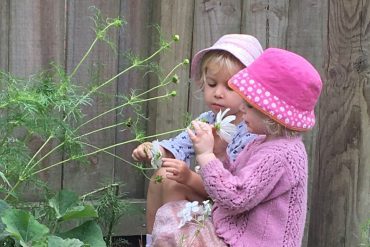The long-term harm of punishment on attachment and authenticity
A child’s brain is underdeveloped and hardwired to need attachment. Punishment disconnects a child’s heart and the parents. It dehumanises. It may work temporarily because a child will do anything to not be disconnected emotionally from their caregivers. They want to do what’s right, they may just not have the tools to do so. As a parent we can look for the need behind a child’s behaviour and help them to understand how to fulfill that need morally.
Empathy grows EQ (emotional intelligence) which helps us imagine how another person is feeling, inspiring us to treat them how we would like to be treated. Punishment hinders EQ which also numbs the heart to empathy, which is why the discomfort does not truly teach the heart. Most children learn how to avoid punishment, without truly learning how to empathise and choose morally from the heart.
Summary:
Connection is a child’s greatest need and an adult’s most effective influence.
Punishment disconnects and uses a child’s immediate need and adult’s long-term influence against each other.
Punishment may lessen the effect (behaviour) but will intensify the cause (unmet needs). To help children behave better, we need to relate better.
How to break the cycle of shame with your child
Mild shame helps us learn social rules but can easily get twisted into toxic shame when children are punished.
Of course, ALL children will at times feel, want or need something and express it in socially unacceptable ways. So today, let’s learn from Dr. Laura Markham about how we can guide children toward appropriate behaviour to get their needs met, without shaming them:
“Let’s start by experiencing mild shame. Try this:
Say YES aloud several times. What do you feel? I smile and feel excited, happy.
Now say NO aloud several times. What do you feel? My smile dies. My body feels tight, closed in. I feel a sense of dread. Some people (usually those whose parents were punitive) also feel anger.
That’s mild shame, which is nature’s way of helping us rein in our impulses so we can stay safe, live well with others, and even attain our goals. Dan Siegel calls it the prefrontal cortex clutch, because it allows us to shift gears from pursuing something we want, to redirecting ourselves to something we want more — for instance, not to disappoint our parent, or not to be stared at in church because we’re making inappropriate noise. All kids need to develop that ability so they can self-regulate.
How do kids develop this internal clutch to shift gears? It’s neural wiring, so it takes repeated experience in the brain. Every time you set an empathic limit that your child decides to follow, you’re helping him practise.
“You love climbing! But the TV cabinet’s not safe for climbing. Let’s go outside where you can climb safely.” What does the child learn? His impulse to climb is fine. Climbing onto the TV cabinet isn’t safe. Climbing outside is fine. Mum and Dad can be relied on to guide him, and to help him switch gears. The child turns and climbs into the parent’s arms. (This is probably not the first time he’s heard this, so it takes great patience from the parent. But sooner or later, he hears their voice in his head as he begins climbing, and he stops. You might think of it as the beginning of conscience, and self-discipline.)
What if, instead, the parent said: “You know better than to climb on that! You naughty boy! Can’t you stop giving me trouble for one minute?” What does he learn? He’s naughty, bad, a source of trouble for his parents. The things he wants to do are bad. Exploring is bad, climbing is bad. He should be different; he’s not good enough the way he is.
He hears the No. And he feels the mild shame that is the biological result of reining in his impulses. But now that shame is all mixed up with the feeling of being a bad boy who is trouble for his parents. He can’t bear that feeling, so he climbs away from them, higher.
Does he WANT to switch gears, to “listen”? Not really. He’s already given up on pleasing his parents. Sure, they can haul him off the TV cabinet (and all of us will, since this is a safety issue), but he isn’t CHOOSING to follow their lead. So he isn’t actually building the neural wiring he needs to switch gears.
Now, his long-suffering mum gives him a timeout, so he’ll learn to “listen.” As he sits in timeout, does he vow to obey her next time? Not likely. He’s overwhelmed with shame. But that feels so unbearable that he’ll do anything not to feel it. Instead of showing remorse, he lashes out in anger. Instead of taking responsibility for his actions, he blames others. Instead of internalising the limit his parent set for him — “That’s not okay to do” — he rebels against that developing voice of conscience in his head and becomes defiant.”
Beginning To Heal from Shame through Empathy, Vulnerability and Courage
Some more quotes by Brene Brown.
“Empathy has no script. There is no right way or wrong way to do it. It’s simply listening, holding space, withholding judgment, emotionally connecting, and communicating that incredibly healing message of ‘You’re not alone.'”
“Courage is contagious. A critical mass of brave leaders is the foundation of an intentionally courageous culture. Every time we are brave with our lives, we make the people around us a little braver and our organisations bolder and stronger.”
“We run from grief because loss scares us, yet our hearts reach toward grief because the broken parts want to mend.”
“I thought faith would say, ‘I’ll take away the pain and discomfort,’ but what it ended up saying was, ‘I’ll sit with you in it.'”
“Owning our story can be hard but not nearly as difficult as spending our lives running from it. Embracing our vulnerabilities is risky but not nearly as dangerous as giving up on love and belonging and joy-the experiences that make us the most vulnerable. Only when we are brave enough to explore the darkness will we discover the infinite power of our light.”
Beginning the Gentle Parenting and Reparenting Journey
Through repetitive practice of gentle parenting, it becomes easier to self-regulate, empathise, problem-solve and set non-violent boundaries.
Gentle parenting practices strengthen the connection between parent and child.
Gentle parenting practices connect the inner-child and inner-parent inside of those seeking the nurturing they did not receive growing up.
Gentle parenting is the ongoing practice of connection and reconnection after inevitable disconnection, through the practice of compassionate connection and conscious communication.
This journey is spiral not linear and we grow stronger through being gentle and true to ourselves as we practise being gentle and true with our children, so they learn to do the same.
Lelia Schott is a South African mother to four sons and two daughters (aged 22, 20, 18, 15, 8 and 5). Lelia is a certified parent coach, unschooler, independent researcher, writer, dreamer, peaceful parenting and child advocate, lover of nature, music and exercise. On her best days she can be found with her family in the garden, swimming or walking along the beach.










